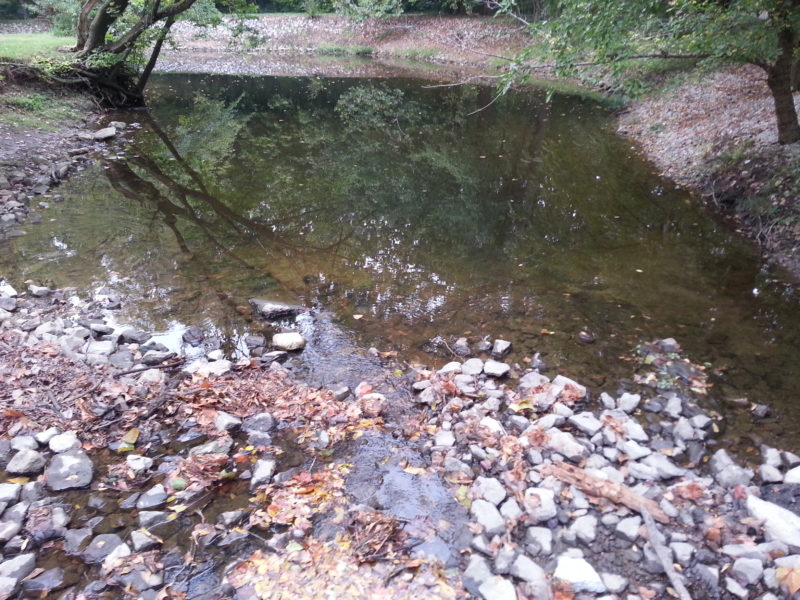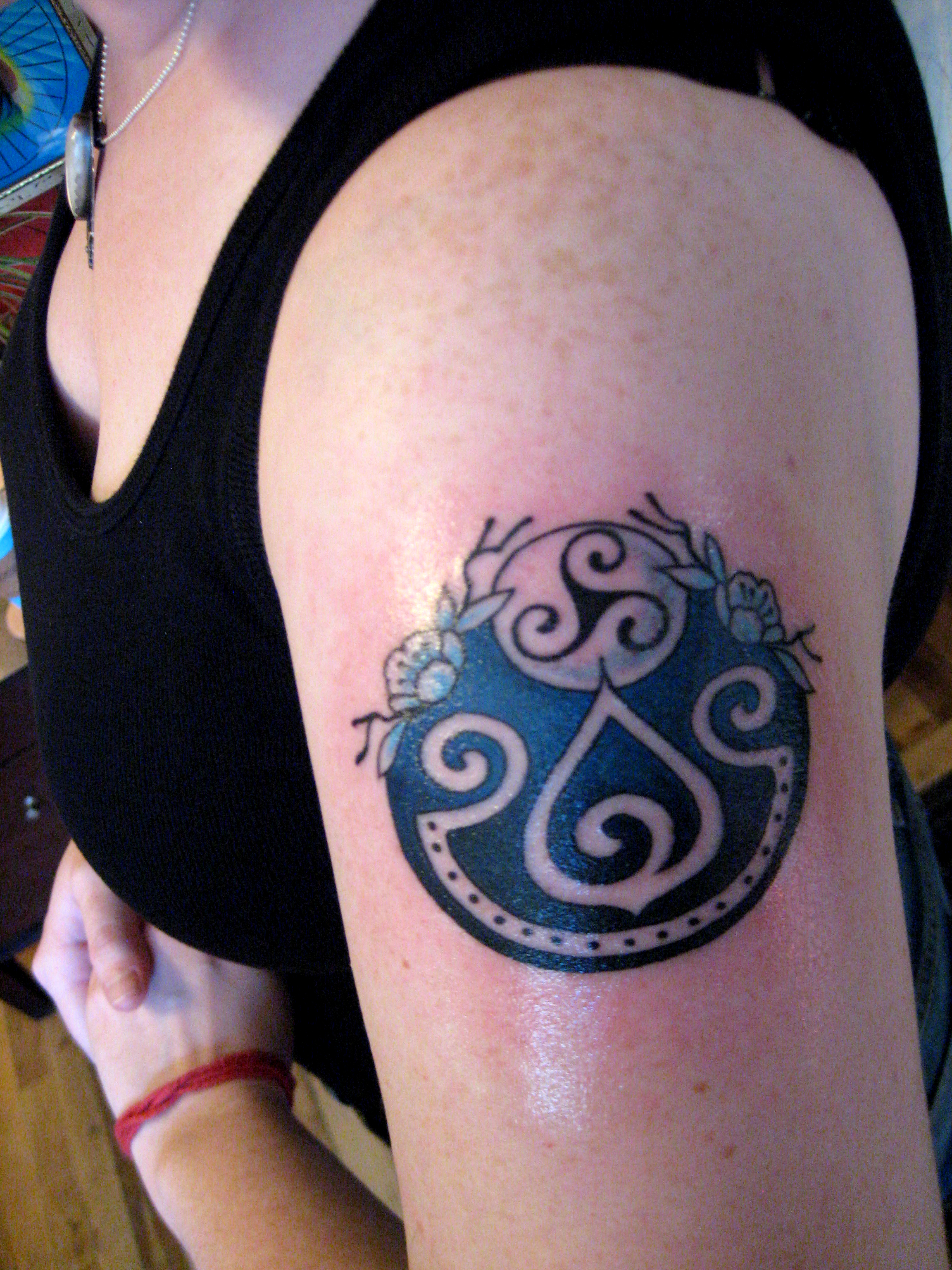Great Mother, Mercurial Child
By Kate Brunner
I am not a boy-mom. As much as I wish I was, I am just not. I gave birth to three wondrous little things; first, a girl and then later, boy-girl twins. I have a son, but even after seven years of shared life, he remains, in so many ways, a complete mystery to me.
With my eldest, I could feel she was a girl with absolute certainty from the moment we created her. She had a name very early on in our gestation and everything about a girl child guiding me across the initiatory threshold of motherhood felt perfect and holy to me. She was born face up and we looked into each other like we had always known this moment was coming, always been a part of each other. She was typical in her newborn, infant and toddler needs for the most part, but she also had a quiet independence about her that permeated our days together. It was easy between us, weaving our daily round together as she grew. She gave me the precious gift of simple confidence that comes sometimes much more hard-fought to first-time mothers. When she was two, my husband looked at me softly across the couch and smiled in a way that belied his readiness for another child. We spoke many times during our engagement and early marriage about the notion of two children for our family. Each parent has two hands. There are two parents if each child needs someone’s undivided attention at the same time. Two laps if they both need a snuggle. Two drivers if each had an activity at the same time. Our well-worn dining room table sat four. All our dishes were already in sets of four. Two children seemed right, seemed to fit our vision of our family’s future. I was honest in my hope for another daughter, and he, for a son. We both got our wish and our old plans- our adorable, orderly, well-planned, picket fence vision of our future crumbled in the wake of the kindling of our twin’s unique magic.
From early pregnancy, they carried such a different energy with them as they grew, changing and stretching first my body and then my heart, mind and spirit past every preconceived limit I’d ever held. They were riotous, intense, restless, filled with joie de vive and an impatience to run free. They were, they are, in a word—wild. They shook down the tower of my confident motherhood, bursting into life, huge and hungry, literally clawing at my breast for the sustenance they craved from me. They challenged me in labor, in infancy, in toddlerhood, and still. But as they’ve grown older, the emphasis has become less on survival of two small creatures the same age and more on nurturing the development of two separate beings. I’ve felt the bond with my younger daughter become more intimate, strengthened by our shared femininity. At the same time, a sense of helpless steals over me as I mourn the gulf that widens between me and my son. I am not a boy-mom. How, I find myself praying, does a girl-mom properly mother a boy?
It’s winter here in Australia and I rest deep within Ceridwen’s Great Cauldron, allowing me to sit in stillness with this ever-present question and hopefully, to brew the spark of potential change that will eventually resolve this and other Confrontations. During each turn of our Cycle of Healing, I try to make time to re-explore the mythos of that Station’s Lady. Doing so gives me the opportunity to filter the familiar mythology through the current lens of my life; to glean a different lesson from the tale that is uniquely connected to who I am and what I experience in that moment. Over time, I’ve learned that what I have to gain by doing so is different every Cycle because this place I originate from now is a different point on my spiral path than the one that contained who I was and what I experienced the last time I cycled through this Station.
Recently, I collapsed on the couch with Ceridwen’s tale after a very long, ridiculously frustrating day; a mug of tea, a down blanket and a scrap of Welsh mythology hopefully promising solace. The first read I wasn’t really present with the text; my mind still replaying every battle of wills, every power struggle, every screaming match with my son over the previous fourteen or so hours. When I realized my eyes had scanned the words, but the rest of me had not engaged, I took a deep breath and decided to finish my tea before trying again. I let the day wash through me one last time and recommitted to that evening’s task.
Ceridwen creates her potion for her hideous son, Affagdu, so that he might at least be gifted enough that the world will overlook his physical deformity and grant him a good life. She sets little Gwion Bach to the task of stirring the potion while she rests after a year’s worth of intense labor. When her back is turned or her eyes closed for a moment, somehow the magic of the potion transfers to Gwion instead. Different versions at different times create a similar, but slightly different scene of this transference. Some say it was the potion that leapt from the Cauldron, burning his fingers, which he, initially unconscious or unthinking of the circumstances, instinctively put in his mouth. Other versions I have read are very clear in Gwion’s conscious decision to intentionally appropriate the magic of the potion for his own. It is a small detail and one I am not qualified to speak to scholastically. But this year, these competing explanations of transference struck me as important. Which was it? An accident or intentional disobedience? How many times have I looked at the aftermath of my own son’s actions and struggled to discern the same?
As I sat with that for a moment, the power of the tale shifted into focus in a way I had never perceived it before. Always viewing the transference of the potion to Gwion Bach as a given in the past, my previous focus was consistently on the correspondences of the ensuing transformations within myself as an individual. Suddenly, this story wasn’t about internal matters of individual healing. In a quiet, nocturnal flash, it became external, intensely relational- the story of a mother’s struggle with her mercurial son. Not the son she understood fully, but the son she never saw coming; the son she was wholly unprepared for as he began to challenge her with every step of his growth. Just as I find myself unable to discern a clear truth to my son’s actions, I still didn’t know whether to believe Gwion chose willful disobedience or whether to have faith in the happenstance created his situation. But when I apply the Hermetic Principle of Cause & Effect, I’m not sure how much it really matters. There are no coincidences. Nothing happens by chance. Either way, Gwion Bach and Ceridwen were transformed, becoming forever mother and son.
The course they pursue through the rest of the tale is fantastical. Gwion, shape-shifting into the nimble Hare. Ceridwen, pursuing immediately as the agile Greyhound. Then, the slippery Salmon, racing away from the sleek Otter. Followed by the swift Wren, barely outpacing the sharp-eyed Hawk. And at last, the Seed. The kernel of Grain devoured by the very patient & determined Great Mother Hen. Again, I’ve always taken the pursuit and its transformations somewhat for granted, knowing they are a necessary part of my internal process. Something about the struggles with my son, that day, though made me consider them in a different light. Many times, in discussions of this tale with other Sisters, we talk about Ceridwen pushing Gwion Bach higher, faster, and farther. We see Her as the catalyst behind his growth, creating the pressure necessary to trigger his, and subsequently our, change. The Principle of Polarity, however, suggests we may consider the entire pursuit concept in reverse and still gain insight from it. What if it is Gwion Bach’s behavior, the behavior of the ever-changing son, which drives the changes in his Great Mother? What if she changes primarily to meet the needs of her sacred child’s continuing development?
Assuming that as a possibility, I have to begin to wonder, what are the son’s needs? Gwion Bach the Hare is trying to tell his Great Mother what he needs her to be. As he runs off across the land, every which way, he reminds me of my son as a recently mobile infant and toddler, eager to see the world, but clueless as to how to navigate it in a straight line and quick to be distracted by the next shiny thing. As the Hare, he also reminds me of my son when he is anxiously anticipating an upcoming event or when he is attempting to persuade me to give in something he wants by peppering me with scattered rational. The Salmon in my son appears when he is trying to get away with not completing a distasteful task I’ve asked of him. He also appears when his quicksilver mind slides smoothly through rapids of complicated mathematics that ought to be beyond a child his age. My son, the Wren, pushes himself to new heights at gymnastics, whirling through the air, attempting to master his newest trick. He also flits from one task to another, not able to focus long enough to complete any of them. But even with all that activity, the whirl of constant motion, at his core he is still so young. He is still the Seed.
The Great Mother challenges me to meet his needs. To look through Her eyes and discern his ever-changing form and ever-present divinity. To be willing to surrender, to shift my shape to meet his, to allow him to drive the transformation of our relationship. One day, his brow will shine and he will be his own Taliesin. For now, he still needs his Ceridwen. He still needs me.








Wow! What a beautiful, powerful piece! It gives me a lot to think about as I raise my own free-spirit, wild as the waves, son. Thank you!